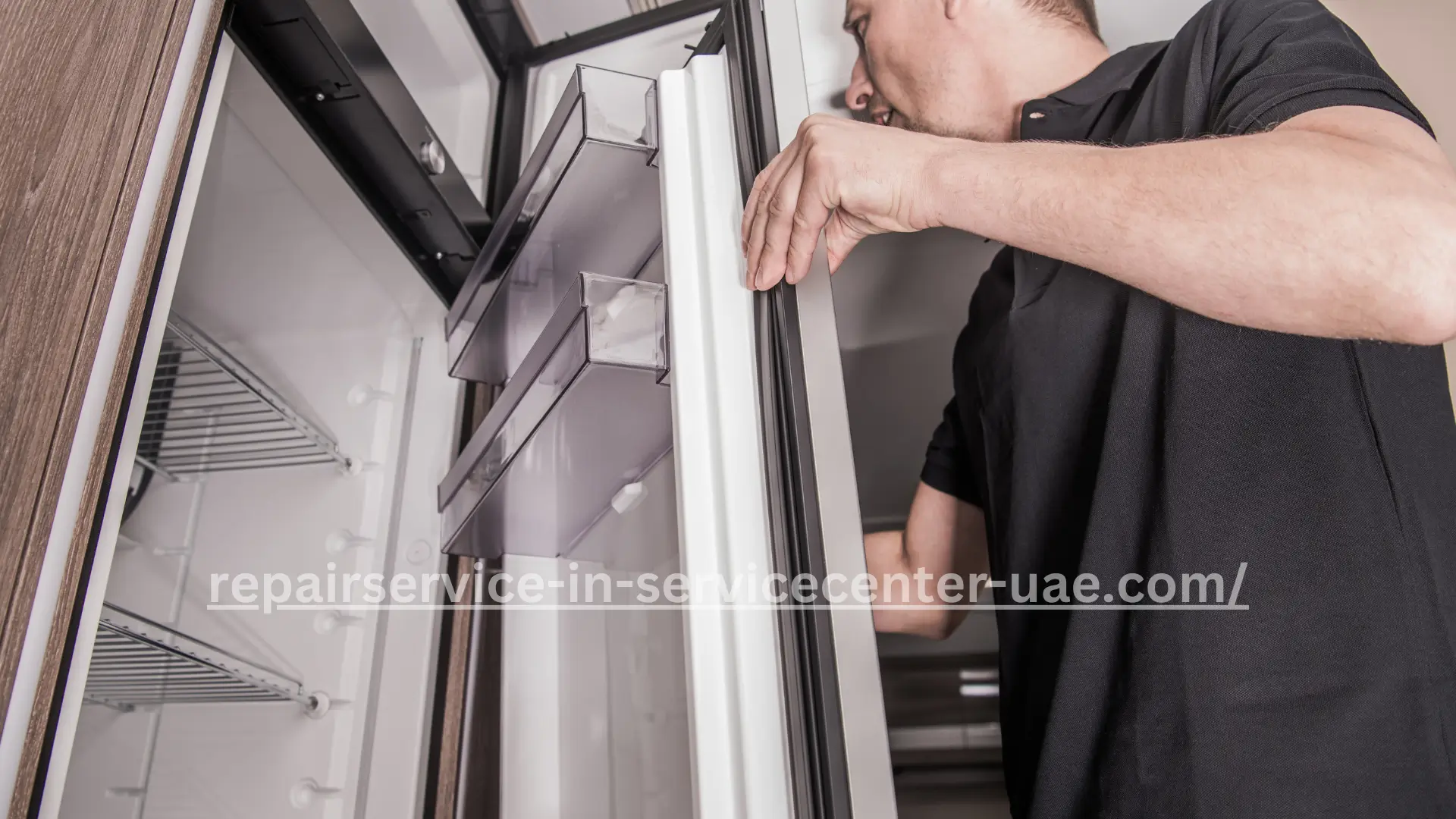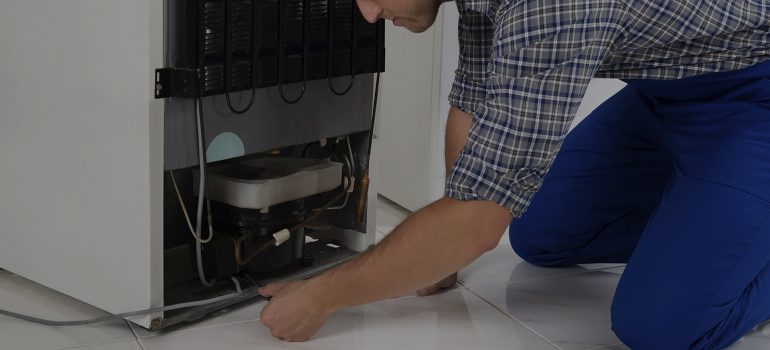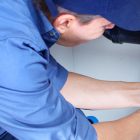How to Handle Refrigerator Odors
We’ve all been there: you open the fridge door, and a wave of unpleasant odor hits you. It’s one of those household nuisances that can be both embarrassing and frustrating. Luckily, dealing with refrigerator odors doesn’t have to be complicated. In this guide, we’ll walk you through simple and effective steps to eliminate those pesky smells and keep your fridge fresh. Whether you’re a seasoned chef or someone who just needs a cold drink, these tips will ensure your fridge stays odor-free.
Understanding the Causes of Refrigerator Odors
Before we dive into solutions, it’s crucial to understand why refrigerator odors occur in the first place. Often, these smells are a result of spoiled food. Leftovers that have overstayed their welcome, forgotten vegetables, or expired dairy products can all contribute to a smelly fridge. But it’s not just food that can cause odors. Spills, especially if left unattended, can seep into the crevices of your fridge and become breeding grounds for bacteria.
Another factor could be a malfunctioning refrigerator. If your fridge isn’t cooling properly, it could lead to food spoilage. Make sure to check the temperature settings; your refrigerator should be at or below 40°F (4°C), and your freezer should be at 0°F (-18°C). Additionally, blocked air vents can affect air circulation, causing odors to linger.
Understanding these common causes helps in addressing refrigerator odors effectively. The key is regular maintenance and timely action to prevent smells from developing in the first place.
Regular Cleaning: The First Step to Odor-Free Refrigeration
The cornerstone of preventing refrigerator odors is regular cleaning. It might seem like a chore, but a little routine maintenance can go a long way in keeping your fridge fresh and inviting.
1. Schedule Regular Cleaning: Make it a habit to clean your fridge thoroughly every three to four months. Remove all the contents and wipe down shelves, drawers, and walls with a mixture of warm water and mild detergent. Don’t forget to dry them properly to prevent moisture buildup.
2. Inspect and Toss Expired Items: While cleaning, check for expired or spoiled items. This is a great opportunity to discard anything that’s past its prime. Be vigilant about checking expiration dates, especially on dairy, meat, and other perishable goods.
3. Clean Spills Immediately: Spills can quickly turn into odor sources if left unchecked. Clean up any spills immediately with a damp cloth and dry the area thoroughly. For stubborn stains, a paste made of baking soda and water can work wonders.
4. Pay Attention to Seals and Gaskets: Refrigerator door seals and gaskets can trap food particles and spills. Wipe them down with a damp cloth regularly to ensure a tight seal and prevent odors from escaping.
By incorporating these cleaning practices into your routine, you’ll significantly reduce the risk of developing refrigerator odors. A clean fridge is not only pleasant to use but also helps preserve the quality and freshness of your food.
Natural Remedies to Combat Refrigerator Odors
If you’re dealing with persistent refrigerator odors despite regular cleaning, natural remedies can be your next line of defense. These solutions are not only effective but also safe for your family and the environment.
1. Baking Soda: Known for its odor-absorbing properties, baking soda is a classic choice for neutralizing fridge smells. Place an open box or a bowl of baking soda in the refrigerator to absorb odors. For best results, replace it every three months.
2. Activated Charcoal: Activated charcoal is another powerful odor absorber. You can find it in pet stores or online. Simply place a few pieces in a shallow bowl in your fridge. It’s reusable; just refresh it by placing it in sunlight for a few hours.
3. Vinegar: White vinegar is excellent at cutting through tough smells. Place a small cup or bowl of vinegar in the refrigerator. It will evaporate and neutralize odors without leaving a vinegar scent behind.
4. Coffee Grounds: Used coffee grounds can help mask unwanted odors. Spread them on a baking sheet to dry, then place a bowl of dried coffee grounds in the fridge. Just like baking soda, they absorb odors effectively.
5. Lemon and Cloves: Cut a lemon in half and stick a few cloves into each half. Place them in the fridge for a fresh, citrusy scent. Replace the lemon halves every few weeks for continuous freshness.
These natural remedies can be used individually or combined for maximum effectiveness. They offer a simple, chemical-free way to combat refrigerator odors and keep your kitchen smelling fresh.
Prevention Tips to Keep Your Fridge Fresh
Prevention is the best strategy when it comes to handling refrigerator odors. By adopting a few smart habits, you can ensure that your fridge remains a pleasant place for your food.
1. Use Airtight Containers: Store leftovers and strong-smelling foods like onions and garlic in airtight containers. This not only prevents odors but also keeps your food fresher for longer.
2. Label and Date: Labeling and dating your food items helps you keep track of what needs to be used up first, reducing the chance of food going bad and causing odors.
3. Avoid Overpacking: Give your refrigerator some breathing room. Overpacking can obstruct air circulation, leading to uneven cooling and increased chances of odor formation.
4. Check the Drip Pan: Many refrigerators have a drip pan located underneath. Over time, it can collect water, spills, and bacteria, contributing to unpleasant smells. Check and clean it regularly.
5. Regularly Inspect Seals and Hinges: Faulty seals and hinges can cause air leaks, leading to inefficient cooling and potential odor issues. Inspect them periodically and replace them if necessary.
6. Maintain a Consistent Temperature: Keeping your fridge and freezer at the recommended temperatures ensures that your food stays fresh longer, reducing the risk of spoilage and odors.
By following these prevention tips, you can minimize the occurrence of refrigerator odors and enjoy a clean, odor-free kitchen environment.
Professional Help and When to Call
Despite your best efforts, there might be instances when refrigerator odors persist, indicating a deeper issue. In such cases, seeking professional help is advisable.
1. Persistent Odors: If odors linger despite thorough cleaning and preventive measures, it could be a sign of mold or bacteria buildup in areas not easily accessible.
2. Mechanical Issues: If your fridge isn’t cooling properly or making strange noises, it could be a mechanical problem contributing to food spoilage and odors.
3. Water Leaks: Water leaks inside the fridge or from the ice maker can lead to mold and odors. Professional technicians can diagnose and fix these issues efficiently.
4. Unusual Smells: If you detect unusual smells like burning or chemical odors, turn off the fridge and call a professional immediately. These could be signs of electrical or gas issues.
For professional assistance, contact a certified appliance repair service. If you’re in the area and need expert help, feel free to call us at 0508700774 for reliable service. Our technicians are trained to handle all refrigerator-related issues and can get your fridge back to optimal condition.
The Benefits of a Fresh and Odor-Free Refrigerator
Keeping your refrigerator free of odors isn’t just about making your kitchen a pleasant place to be. It has several additional benefits that can impact your daily life and overall well-being.
1. Healthier Food Storage: A clean, odor-free fridge means your food is stored in a safe environment, reducing the risk of contamination and foodborne illnesses.
2. Prolonged Freshness: By preventing odors, you also help maintain the freshness and quality of your food, reducing waste and saving money in the long run.
3. Improved Energy Efficiency: A well-maintained refrigerator runs more efficiently, consuming less energy and keeping your utility bills in check.
4. A More Inviting Kitchen: A fresh-smelling fridge contributes to an inviting kitchen atmosphere, making meal prep and cooking a more enjoyable experience.
5. Peace of Mind: Knowing that your fridge is clean and odor-free gives you peace of mind, allowing you to focus on other important tasks and enjoy your time at home.
Maintaining a fresh and odor-free refrigerator is a simple yet effective way to enhance your kitchen’s functionality and your family’s well-being.
Conclusion
Refrigerator odors can be a nuisance, but with the right strategies, they’re entirely manageable. From understanding the causes to regular cleaning and using natural remedies, there are plenty of ways to keep your fridge smelling fresh. Preventive measures and professional help when needed ensure that odors don’t stand a chance.
Remember, a clean and odor-free refrigerator is not just about aesthetics—it’s about creating a healthy and inviting space for your food. By following these tips and reaching out for help when necessary, you can enjoy a fridge that’s as fresh as the food you store in it. For any persistent issues or expert advice, don’t hesitate to contact us at 0508700774. We’re here to help you maintain a clean, efficient, and odor-free refrigerator.







Recent Comments